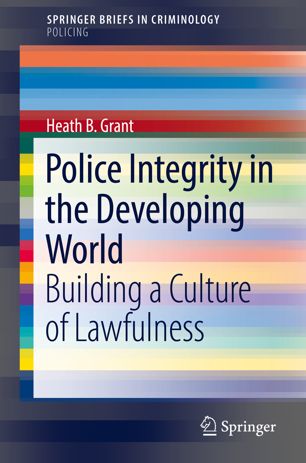

Most ebook files are in PDF format, so you can easily read them using various software such as Foxit Reader or directly on the Google Chrome browser.
Some ebook files are released by publishers in other formats such as .awz, .mobi, .epub, .fb2, etc. You may need to install specific software to read these formats on mobile/PC, such as Calibre.
Please read the tutorial at this link: https://ebookbell.com/faq
We offer FREE conversion to the popular formats you request; however, this may take some time. Therefore, right after payment, please email us, and we will try to provide the service as quickly as possible.
For some exceptional file formats or broken links (if any), please refrain from opening any disputes. Instead, email us first, and we will try to assist within a maximum of 6 hours.
EbookBell Team

4.4
12 reviewsThis Brief explores the problem of creating organizational change and a culture of lawfulness within police organizations in the developing world. In many countries where police are charged with responding to crime, they are themselves entrenched in histories of corruption, human rights abuses, inefficiency as well as a lack of public trust. While police corruption can happen anywhere, areas of political transition tend to have a more entrenched cultural history of corruption.
However, the author argues that even in the most challenged forces, there remains hope for organizational change. This brief demonstrates how understanding the local socio-political context, and applying evidence-based best practices for police integrity training can bring about change. The brief summarizes the current state of knowledge on police integrity training, strategies for rethinking corruption and community policing, as well as two case studies in Bangladesh and Mexico with applications for other regions.
This work will be of interest to students and researchers in criminology and criminal justice, particularly with an interest in police studies and corruption, as well as related fields such as political science, international studies and human rights.